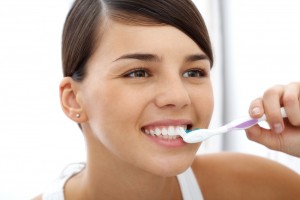 One of the most important keys to living healthy is maintain good oral hygiene. Good oral hygiene is not something that comes naturally. It requires plenty of work and diligence. Even if you think you are brushing enough to protect your teeth, you may in fact not be doing enough to protect your teeth and gums in the long run.
One of the most important keys to living healthy is maintain good oral hygiene. Good oral hygiene is not something that comes naturally. It requires plenty of work and diligence. Even if you think you are brushing enough to protect your teeth, you may in fact not be doing enough to protect your teeth and gums in the long run.
First, you need to know what you’re up against. One of the most common dental problems is tooth decay also commonly known as cavities. Cavities form due to sugar, starch and bacteria being present in the mouth. This combination produces an acid that can burn right through tooth enamel and produce holes. These holes then become infected with bacteria. Without treatment, this can lead to a lot of pain and the loss of an entire tooth.
Second, you need to combat gingivitis. Gingivitis, also referred to as gum disease, occurs when the gums as well as any attached ligaments, bones and nerves become infected or inflamed due to bacteria. Left unchecked, this can lead to more serious periodontitis that can indeed result in tooth loss.
Overall, the enemies here are bacteria, sugar, acids, plaque and tarter. Maintaining good oral hygiene means making sure your mouth is free of these so you do not develop problems such as cavities and gingivitis.
First, you need to make sure your teeth are coming in contact with fluoride. Fluoride in the mouth can stop the production of acid by the bacteria that cause tooth decay. The safe way to apply fluoride to your mouth is through tooth paste and drinking water. Studies have shown that people that drink water that contains fluoride generally have healthier teeth. Brushing also helps cut down on plaque and tartar build-up from food.
So brushing is a necessity. A person should brush when they wake up, after meals and before they go to sleep. When a person brushes, they should not rinse due to the fact that the fluoride staying in the mouth increases the protection. This is especially important before a person goes to sleep. The effectiveness of brushing is also enhanced by electric tooth brushes with extra fine bristles that can get at places between the teeth that regular tooth brushes cannot.
However, brushing must also be combined with flossing and rinsing with a dental disinfectant. Flossing removes the food that gets stuck in between your teeth that develops into plaque and tartar and allows the growth of harmful bacteria. Rinsing also helps kill the bacteria that lives in between your teeth and gums. Rinsing twice daily, once in the morning and once at night, is a very good idea. Brushing, flossing and rinsing should also be complimented by regular cleanings by a dental hygienist for the most effectiveness.
Lastly, your diet is also very important. Try to avoid a lot of sugar to prevent cavities. More acidic drinks can also weaken tooth enamel. However, if you do consume sugar, make sure to brush as soon as possible to lessen its harmful effects.

